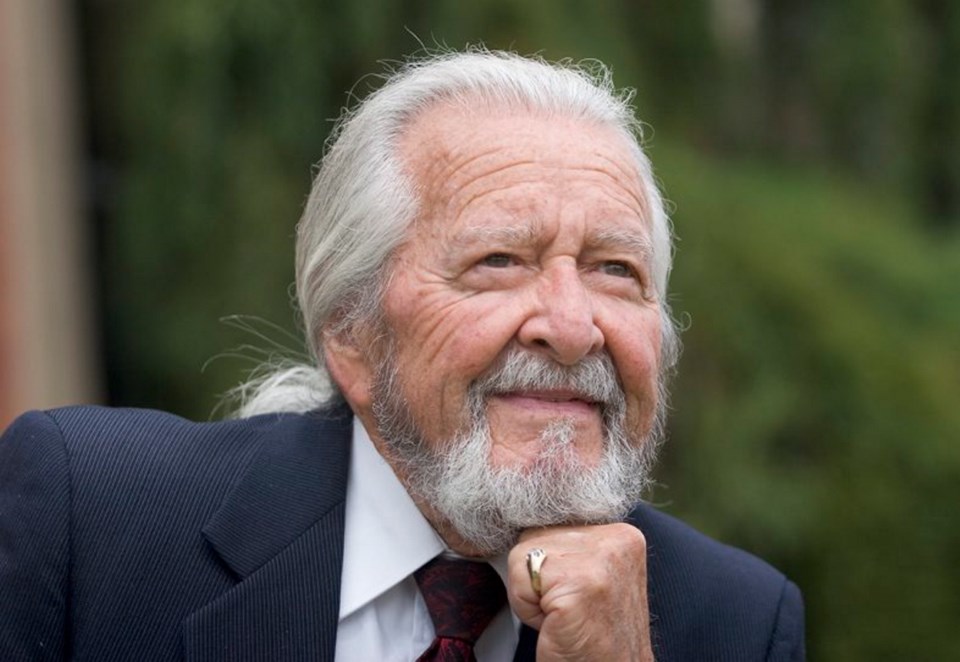The Victoria school trustee who promised “to make education free of charge for every kid” always stood on principle.
John Young, the eldest of 12 children who grew up amid poverty in Depression-era New Brunswick, led a successful challenge against school fees in B.C. Supreme Court in 2006. The highly publicized case led to a ruling against fees for any course that would lead to graduation.
Young, who served with the Greater Victoria school district for close to 20 years, died Wednesday at 92 after a short time in hospital after a fall.
Peg Orcherton, the current chairwoman of the Greater Victoria board of education, said she and Young sat side-by-side at the board table for nine years and worked closely together. She had a chance for a final hospital visit with Young on Monday.
Young was “such a fighter, a very generous man, a strong advocate for the poor and the oppressed and vulnerable,” Orcherton said.
“He always had his eye on the students and what was best for them.”
The province responded to Young’s court victory by passing legislation in 2007 that allowed fees for such things as musical-instrument rentals, sports academies and shop-class expenses, essentially circumventing the court decision. Provincial and local authorities also backed policies to help students in need with expenses related to course work.
Young also attracted headlines earlier in his life when he was the founding principal at Campbell River Senior Secondary. He was there from 1965 to 1972, ending his tenure when he was fired by the education minister for disobeying the School Act by hiring a First Nations woman without the necessary qualifications.
He said he made the move so that First Nations students would have a role model at the school.
His time in Campbell River was also marked by his support for some unique educational philosophies for the era, such as allowing students to learn at their own pace.
Young, who lost his school board seat in 2011 at the age of 90, was happy to be considered a maverick or crusader, and his passion earned him respect from his peers.
District superintendent John Gaiptman said Young was truly “a man of the people,” and very recognizable in public with his long, white hair and ponytail.
Gaiptman said he considered Young a mentor.
“He was the sort of person you could verbally battle with, and, before we left the office, we could still give ourselves a good, strong handshake. It wasn’t personal, it was people with differences of opinion, and then we’d still end up talking about where we should go for lunch the next day.”
Gaiptman said Young always showed a great deal of compassion and generosity.
“He was most generous man I ever met.”
Every Christmas, for example, Young gave the district $1,000 to be distributed to students from needy backgrounds.
“Remember, this was not a wealthy man by any stretch of the imagination. Why he wanted to give the students money was so they could go out and buy members of their family a gift.”
It was the sort of thing that Young, given the circumstances he grew up in, could never do himself as a youth, Gaiptman said.
Young had strong beliefs and always stood by them, Gaiptman said.
“He never, never took a back step on his principles,” he said.
“He marched to his own beat. He never went with what was popular, he went with what he believed was right at all times.”



